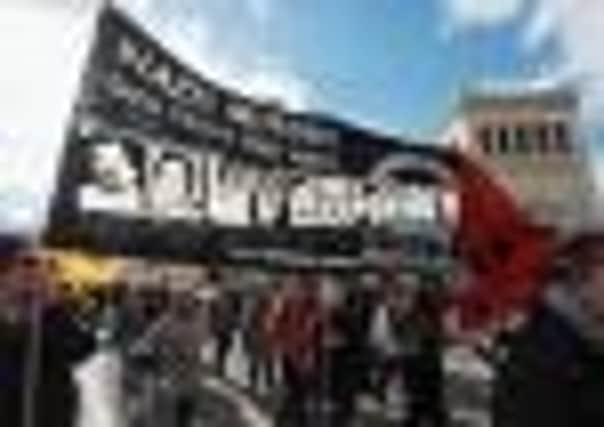Neo-Nazi trial set to expose security forces failing


It is a trial of the last surviving member of the murderous neo-Nazi terrorist cell which killed nine immigrant businessmen – eight Turks and a Greek – and a policewoman over a 13-year period. But it is also shaping up as an indictment against the entire German law enforcement establishment, its attitudes to dangerous neo-Nazism and the failings which led authorities to believe that a single racist maniac – dubbed “The Doner Kebab Killer” because so many victims ran fast-food outlets – was responsible for the assassinations.
Prosecutors will press for Beate Zschaepe, 38, to be jailed forever when her trial begins on Wednesday in the most heavily guarded courtroom since the cases against the Baader-Meinhof terrorists of the 1970s were heard. Charged with participation in all ten executions, 15 robberies, setting up a terrorist organisation and numerous other acts, Zschaepe could expect, under normal German law, to be out after 15 years if convicted. But prosecutors are seeking to implement the special clause in the national law called “particularly grievous guilt” which allows the state to incarcerate a criminal forever.
Advertisement
Hide AdAdvertisement
Hide AdHer trial, along with four supporters, is the biggest ever held in Germany of extreme right-wingers since the post-Second World Two republic was formed and security in Munich where it will take place will be unparalleled. Sewers have been sealed to prevent bombs being placed near the court, snipers will be on rooftops and police leave throughout Bavaria has been cancelled.
Zschaepe, idolised by Norwegian mass-killer Anders Breivik, who wrote to her advising her to use her trial to spread “right-wing propaganda,” is branded by Germany’s federal prosecutor Harald Range as being at the heart of planning and carrying out the murders.
But the trial is about so much more than her – it is about the deep national sense of shame in police failing to stop the NSU, which was composed of Zschaepe and two men, Uwe Mundlos and Uwe Boehnhardt, who were also her lovers. No link was ever made between the group and the killings, despite a vast covert intelligence network. It has led to charges that certain police and intelligence chiefs wanted to protect the NSU because they admired them, although claims of a conspiracy have been rejected.
The group was supported by a loose network of neo-Nazis who dreamed of a Fourth Reich. During the killings no claim of responsibility was ever made; the group hoped that the randomness of the murders would strike fear into Germany’s immigrant population who would begin leaving en-masse.
They went underground in 1998 and lived from the proceeds of bank robberies across the country. The cell imploded on 4 November 2011 when Mundlos and Boehnhardt botched a bank raid. In a pre-arranged plan to avoid capture, Mundlos shot his accomplice before turning the gun on himself.
Zschaepe, as instructed, blew up their hideout in the east German city of Zwickau. But the blast and subsequent fire failed to destroy a mountain of evidence. Days later, as a massive manhunt stretched across the country, she turned herself in.
Prosecutor Range, 64, said collating the evidence was a “Herculean task. We collected 6,800 pieces of evidence, mostly from the wreckage of the burned-out house in Zwickau, and questioned about 1,200 witnesses.
“Their central motive was to unsettle our fellow citizens of foreign origin – the goal being that they would leave Germany, out of fear for their own safety.”